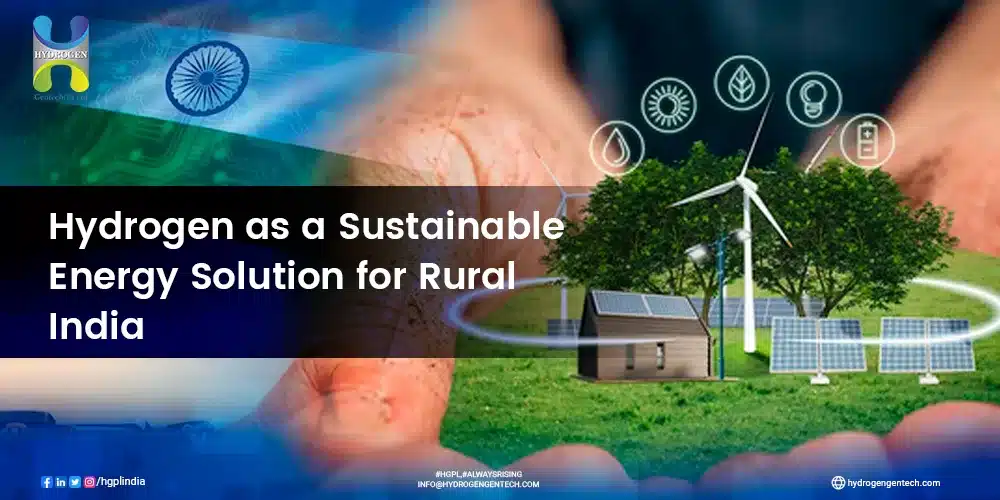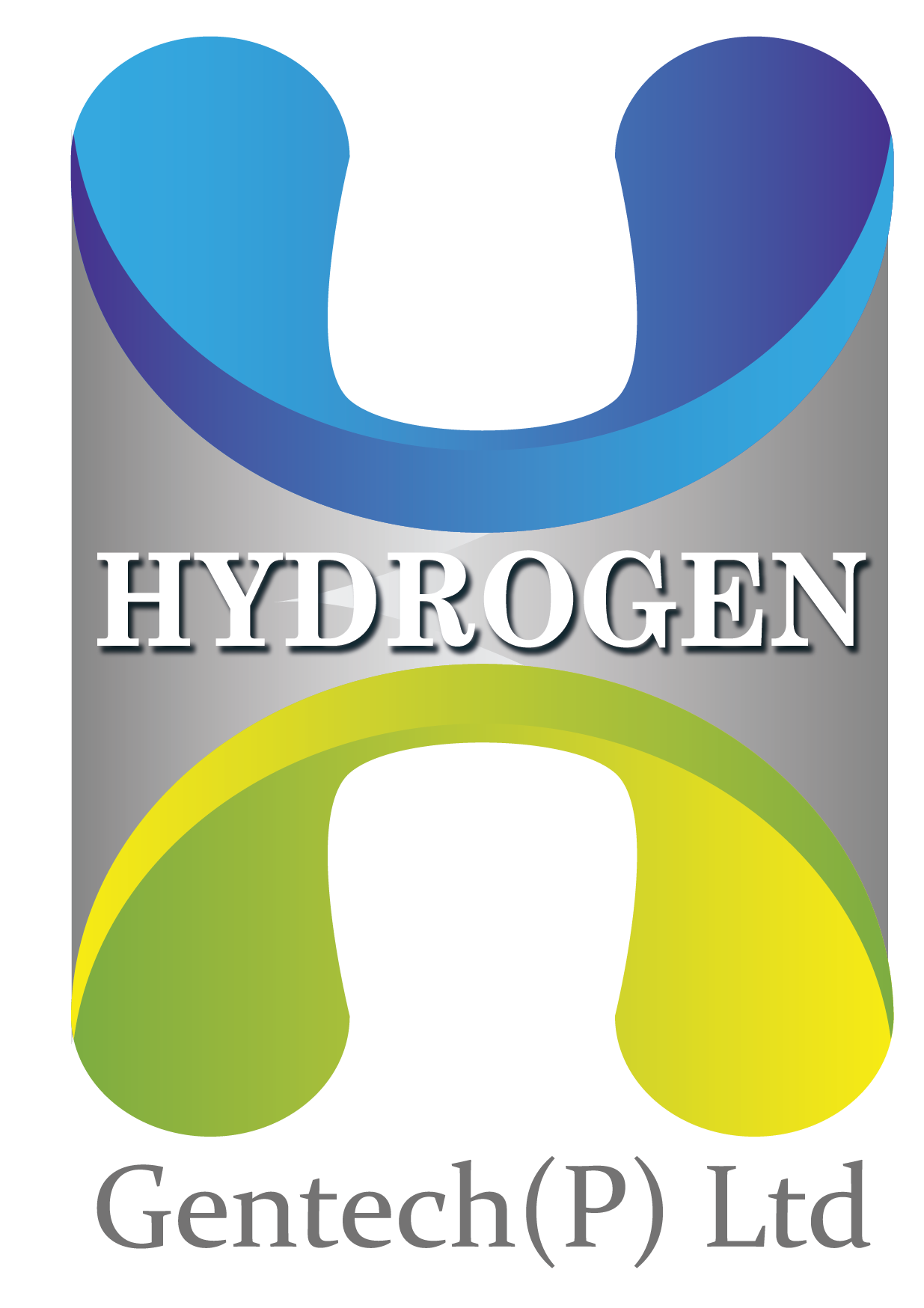
India’s rural heartland is home to nearly 65% of its population, many of whom still lack access to reliable and clean energy. In recent years, significant progress has been made to improve energy access, but challenges remain, particularly in remote areas where grid connectivity is limited or non-existent. For these regions, the need for a dependable, affordable, and environmentally friendly energy solution is critical. Hydrogen, particularly green hydrogen, is emerging as a promising option to meet these needs, offering a sustainable energy solution for rural and remote areas of India.
The Energy Challenge in Rural India
Rural India faces unique energy challenges that hinder economic development, improve living standards, and reduce poverty. Some of the key energy issues in rural areas include:
- Limited Grid Access:
While India’s electrification initiatives, such as the Saubhagya Scheme, have extended electricity access to millions of households, some remote villages still lack consistent grid connectivity. The cost of extending transmission lines to isolated locations can be prohibitively high. - Unreliable Power Supply:
Even in villages connected to the grid, power outages and fluctuations in supply are common. This unreliable energy infrastructure hampers agriculture, small industries, healthcare, and educational institutions, slowing rural development. - Dependence on Polluting Energy Sources:
Many rural households rely on traditional energy sources like firewood, kerosene, and diesel generators for cooking, heating, and power. These sources are not only inefficient but also contribute to indoor air pollution and environmental degradation, negatively impacting health and the local ecosystem. - High Energy Costs:
For many rural communities, energy from diesel generators or kerosene is expensive, and the fluctuating costs of these fuels can strain household budgets. There is a clear need for affordable and sustainable alternatives.
Hydrogen: A Clean and Reliable Energy Alternative
Hydrogen, particularly green hydrogen produced through the electrolysis of water using renewable energy sources such as solar and wind, offers a clean and sustainable energy solution for rural India. Hydrogen is versatile, can be stored and transported easily, and can be used in a wide range of applications, from power generation to transportation. Here’s why hydrogen holds immense potential for rural energy needs:
- Decentralized Energy Generation:
Hydrogen plants can be set up in rural areas, allowing for localized energy production. This decentralized approach eliminates the need for expensive and unreliable grid extensions, making energy accessible to even the most remote regions. Small-scale hydrogen production units, powered by local renewable energy sources, can provide electricity for households, schools, healthcare centers, and small businesses. - Storage and Reliability:
One of the significant advantages of hydrogen is its ability to store energy for long periods. Renewable energy sources like solar and wind are intermittent, meaning they don’t produce electricity consistently throughout the day. Hydrogen can act as a storage medium, converting excess energy generated during peak production times into hydrogen, which can then be used to generate electricity when needed, ensuring a reliable power supply even in the absence of sunlight or wind. - Clean and Pollution-Free:
Unlike diesel generators or kerosene, hydrogen energy is completely clean. When used in fuel cells to generate electricity, hydrogen’s only by-product is water vapor, making it an environmentally friendly alternative. This reduction in pollution can lead to better air quality in rural areas, improving public health outcomes, especially for women and children, who are disproportionately affected by indoor air pollution from traditional cooking and heating fuels. - Diverse Applications in Rural Communities:
Hydrogen can be used in various ways in rural settings. Besides electricity generation, it can fuel transportation, power agricultural machinery, and serve as a clean fuel for cooking. Hydrogen-powered irrigation systems, tractors, and other farming equipment can help boost agricultural productivity while reducing reliance on costly and polluting fossil fuels. - Job Creation and Economic Development:
The establishment of hydrogen production plants and infrastructure in rural areas can create jobs, both directly in the operation and maintenance of these facilities and indirectly in supporting industries. The local production of clean energy will reduce reliance on imported fuels, keeping more money within rural communities and driving economic growth.
Hydrogen as a Key Player in Decentralized Renewable Energy Systems
Decentralized renewable energy systems (DREs) are critical to addressing energy needs in rural areas. Solar photovoltaic (PV) systems, wind turbines, and small hydropower stations have been successfully deployed across many parts of rural India, but these systems face the challenge of intermittency. Hydrogen, when integrated with these DREs, acts as a crucial enabler of continuous and uninterrupted power supply.
- Hydrogen-Solar Hybrid Systems:
Solar energy is abundant in most parts of India, making solar PV systems a popular choice for rural electrification. However, solar energy is only available during daylight hours. A solar-hydrogen hybrid system can produce electricity during the day while using excess solar energy to generate hydrogen. The hydrogen is stored and can be converted back into electricity during the night or cloudy periods, ensuring a consistent energy supply. - Wind-Hydrogen Systems:
Similar to solar, wind energy can be harnessed in regions with high wind potential. By pairing wind turbines with hydrogen production units, excess wind energy can be converted into hydrogen, providing a backup energy source during periods of low wind.
These hybrid systems are particularly beneficial for powering mini-grids in rural areas, providing an independent and reliable energy solution without needing a connection to the national grid.
India’s Push for Green Hydrogen in Rural Development
India’s commitment to adopting hydrogen as a key energy source is reflected in its National Hydrogen Mission. The mission aims to scale up hydrogen production and utilization, with a focus on green hydrogen generated through renewable sources. As part of this mission, rural and remote areas are poised to benefit from pilot projects and large-scale initiatives that demonstrate the viability of hydrogen energy in decentralized settings.
Several state governments and private companies are also exploring hydrogen projects for rural electrification. For instance, regions in India with high renewable energy potential—such as Rajasthan, Gujarat, and Tamil Nadu—are being targeted for hydrogen development projects that could provide clean energy to rural communities while generating local employment.
Challenges to Implementing Hydrogen in Rural India
While hydrogen holds great promise, there are challenges to its widespread adoption in rural India:
- High Initial Costs:
The cost of producing green hydrogen is currently higher than that of traditional fuels like coal and natural gas. However, as technology improves and economies of scale are achieved, these costs are expected to come down. Government subsidies and financial incentives can also play a key role in making hydrogen energy more affordable for rural communities. - Infrastructure Development:
For hydrogen to become a mainstream energy source in rural areas, the necessary infrastructure for production, storage, and transportation needs to be developed. This includes electrolyzers, hydrogen storage tanks, and fuel cells. Building this infrastructure in remote regions can be challenging, but with proper planning and investment, it is achievable. - Skill Development:
Operating and maintaining hydrogen energy systems require specialized skills. Ensuring that rural communities have access to training and education on hydrogen technologies will be critical to the successful implementation of hydrogen projects.
Conclusion
Hydrogen offers an exciting opportunity to address the energy challenges faced by rural India. Its potential to provide clean, reliable, and decentralized power can help bridge the energy access gap in remote areas while promoting sustainable development. With continued investment, technological advancements, and government support, hydrogen can play a vital role in improving the quality of life in rural communities, driving economic growth, and helping India achieve its climate goals. Hydrogen Gentech Private Limited, as a leader in hydrogen plant manufacturing, is well-positioned to contribute to this transformation, bringing the benefits of hydrogen technology to the doorstep of rural India.

